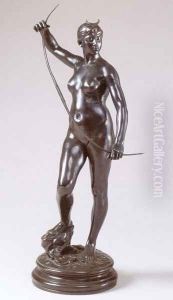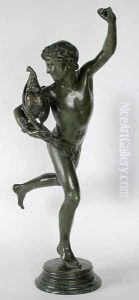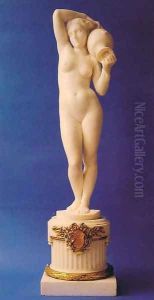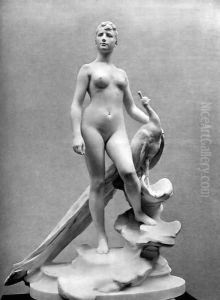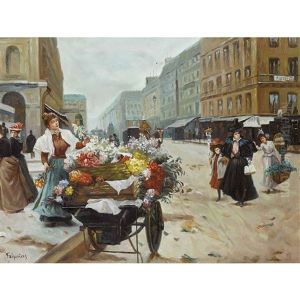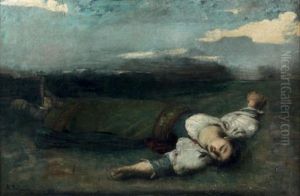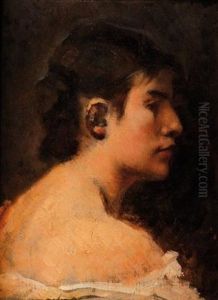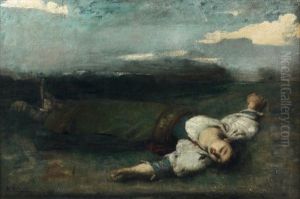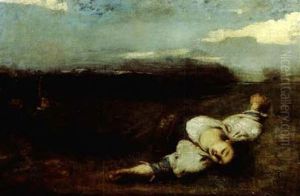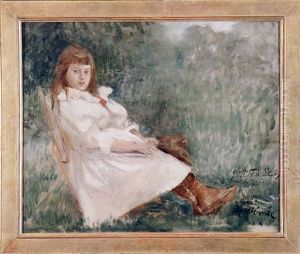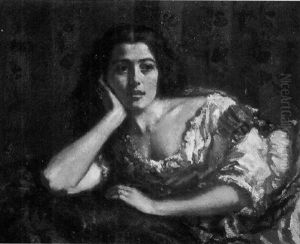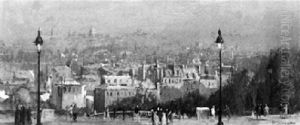Jean-Alexandre-Joseph Falguiere Paintings
Jean-Alexandre-Joseph Falguière was a prominent French sculptor and painter born on September 7, 1831, in Toulouse, France. His contributions to French art in the second half of the 19th century were significant, as he was known for his works that embodied the academic art tradition, yet also reflected the beginnings of a more modern sensibility. Falguière won the prestigious Prix de Rome in 1854, which marked the start of a distinguished career, allowing him to study in Rome, where he was influenced by classical art and the Renaissance masters.
Upon returning to France, Falguière quickly established himself in the artistic circles of Paris, becoming a respected member of the French Academy of Fine Arts in 1882. He was also a teacher at the École des Beaux-Arts, where he influenced a generation of artists. His sculptures, which often depicted mythological themes, historical figures, and allegorical subjects, were celebrated for their expressive detail, dynamic composition, and the skillful use of materials such as marble, bronze, and plaster. Among his most famous works are the 'Winner of the Cockfight' (1864), which earned him a medal at the Salon, and 'Tarcisius, the Christian Martyr' (1868), which further solidified his reputation.
Falguière also contributed to the architectural beautification of Paris with his public monuments and statues, including the statue of Alexandre Dumas (father) at the Place Malesherbes in Paris and the monument to Admiral Courbet in Abbeville. His works are characterized by a blend of classical idealism and a more naturalistic approach that prefigured some aspects of modern sculpture. Despite his adherence to the academic tradition, his ability to infuse his subjects with a sense of vitality and emotion speaks to the transitional nature of his art, bridging the gap between the academic and the modern.
Falguière's influence extended beyond his sculptures to his paintings, although he is less known for his work in this medium. His paintings often explored similar themes to his sculptures, focusing on the beauty of the human form, historical narratives, and classical mythology. He was awarded the Grand Prix at the Exposition Universelle in 1889, which was a testament to his mastery across different artistic mediums.
Jean-Alexandre-Joseph Falguière passed away on April 20, 1900, in Paris. His legacy is preserved in the collections of major museums in France and around the world, where his works continue to be admired for their technical excellence and artistic beauty. Through his sculptures and teachings, Falguière played a crucial role in the development of French art in the late 19th century, leaving a lasting impact on the generations that followed.
